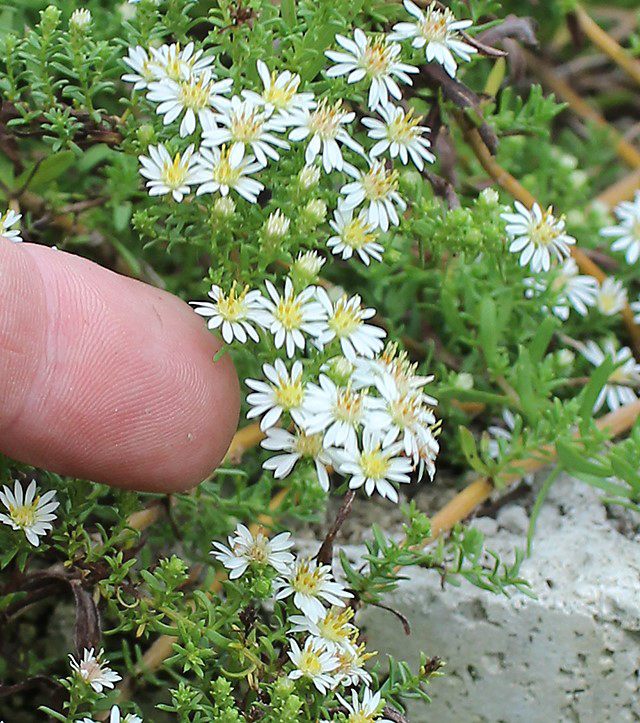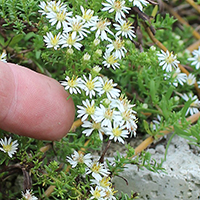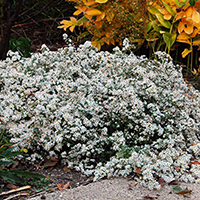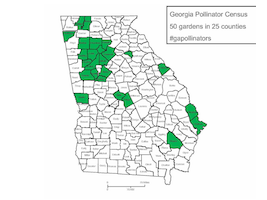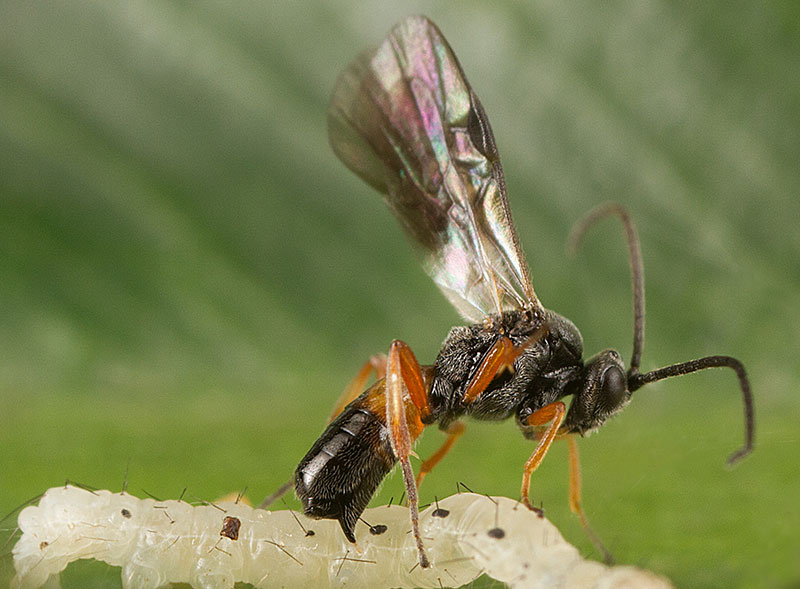Calling the class roll is a time-tested way for teachers to start the school year, but when Georgia students head back to school this year, some of them will complete a roll call of their own.
Honeybees? Present. Leafcutter bees? Here. Swallowtail butterflies? Yo.
Georgia students and teachers at 50 school and community gardens across the state will launch the inaugural Pollinator Census Project this August. The data will shed light on pollinator populations in Georgia and how well the native ground cover — the ‘Snow Flurry’ aster — can support them.
The counting starts when class reconvenes, but the project actually began last May when Becky Griffin, University of Georgia Cooperative Extension community and school garden coordinator, crisscrossed the state to visit participating schools and deliver insect study kits and flats of ‘Snow Flurry’ asters. This aster is a native plant that blooms in the fall and is known to support a number of pollinators.
“This is a really great citizen-science project that will include students in 41 counties across the state,” Griffin said. “It’s a win for us because we’re going to gather great, widespread data about pollinator health and how this native plant helps to support pollinators.
“The teachers win because they’re being recognized as part of this study and it’s a great way to help their students relate the science they’re learning in the classroom to the real world.”
Over the summer, teachers and students cared for the aster patches. They have agreed to watch them for 15 minutes once or twice a week for four weeks and to record the types of pollinators they see visiting the plants. Griffin believes they should have all the data recorded by Nov. 1.
In exchange, UGA Extension will provide lesson plans and learning materials to help students learn about the role of pollinators in the ecosystem and to help them identify the different types of insects common in Georgia landscapes.
Teachers will receive pollinator identification training in August as well as training on how to integrate the census project into the new Georgia Standards of Excellence curricula.
“My agricultural science class at East Paulding High School is taking part in the Georgia Pollinator Census Project to foster a deeper understanding about beneficial pollinators and their importance to the functioning of our ecosystem,” said Kyle Chapman, agricultural science teacher at East Paulding High School in Dallas, Georgia. “Additionally, the project will offer students the opportunity to collect and submit data that has real-world applications, which, I think, will have more of an impact and increase their engagement.”
Like many of the citizen scientists working on the Georgia Pollinator Census Project, Chapman became involved with UGA Extension’s pollinator protection efforts in 2016, when he registered the East Paulding High School Pollinator Garden with the UGA Extension Pollinator Spaces network.
Griffin launched the Pollinator Spaces Project, a program that recognizes gardeners and landscapers who create oases for pollinators using the state’s plan, “Protecting Georgia’s Pollinators,” as a guide. So far 84 private and public gardens have registered as pollinator-safe habitats.
Participating schools and gardens include:
- Cass High School
- Lifesong Montessorti School
- South Central Middle School
- Montessori of Macon
- Alfred Eli Beach High School
- Lyerly Elementary School
- Griffin Apiary
- Soiled Community Garden
- Yelton Garden
- Braman Garden
- HB Stroud Elementary School
- Hillsman Middle School
- St. Joseph Catholic School
- Chalker Elementary School
- Still Elementary School
- West Side Elementary School
- Reed Creed Interpretive Park
- Brooks Elementary School
- McGuffey Nature Center
- Academe of the Oaks
- Frazier Rowe Park
- Henderson Park Community Garden
- Oak Cliff Elementary School
- Paideia School
- Douglas County Cultural Arts Center
- Effingham College and Career Academy
- Almost Heaven Garden
- Fayette County Education Garden
- Forsyth Central High School
- Matt Elementary School
- Vickery Creek Elementary School
- Maynard Jackson High School
- Brookwood Elementary
- Radloff Middle School
- Summerour Middle School
- New Mountain Hill Elementary
- Red Oak School
- Chatsworth Community Garden
- Chatsworth Elementary School
- Theme School Pollination Station
- East Paulding High School
- McGarity Elementary School
- Healthy Life Community Garden
- Orrs Elementary School
- Jeffersonville Elementary School
- James E. Bacon School
- Brookwood School
- City Park School
- Dalton Middle School
- Roan School
The census project is the next step in getting Georgians involved in protecting pollinators.
For more information on how to protect the state’s pollinators and for updates on the Georgia Pollinator Census Project, visit ugaurbanag.com/gardens.

